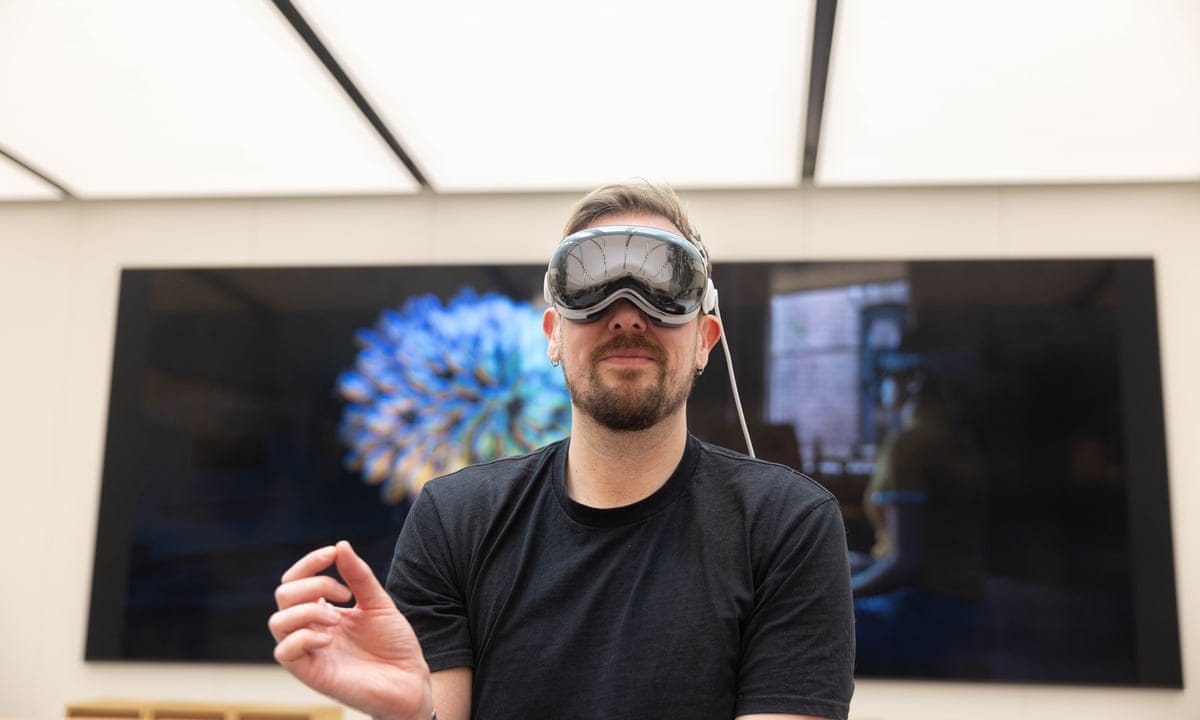The Australian release of the Vision Pro five months post its US debut saw retail prices set at $5,999 - a significant entry point into the market. During its unveiling event in Melbourne's Apple Chadstone store, staff members personalized the device for customers, ensuring compatibility with individual prescriptions and setting up functionality.
Customers experienced seamless interaction as they utilized hand gestures to navigate through content displayed on Vision Pro screens - a process reminiscent of using an Apple Watch. Demonstrations included full panoramic images, spatial photography from the iPhone 15 Pro, and videos featuring family gatherings, which felt intimately close due to the immersive experience provided by Vision Pro's display capabilities.
Initial skepticism about wearable technology persists; however, personal adoption has been transformative for those integrating it into their daily routines. The device's primary appeal lies in its cinematic experience - a valuable feature at a time when public movie-going is declining and home viewing becomes more prevalent.
While the Vision Pro stands out from previous attempts in digital eyewear, some discomfort experienced during prolonged use suggests there's room for improvement. Nevertheless, its intuitive design allows users to immerse themselves without compromising awareness of their surroundings - an advantage bolstered by a prescription lens matchup that enhanced overall usability.
In professional settings, the Vision Pro might find relevance as part of a new digital workspace paradigm. It has the potential to revolutionize remote working experiences with its integration capabilities for video conferencing platforms like Zoom. However, much hinges on application development from third-party creators.
Despite my deep commitment to Apple's ecosystem and previous device ownership within it, I remain cautiously optimistic about adopting the Vision Pro due to its current pricing and feature set - a decision that will likely evolve with future app offerings.
Read next

"AirPods Pro 3 reviewed: Upgraded battery, superior noise cancellation, top-tier performance"
Apple’s widely used AirPods Pro wireless earbuds have returned for their third iteration, offering improvements in comfort, battery performance, integrated heart rate tracking, and enhanced noise cancellation. The new model appears poised to be as prevalent as earlier versions.
Three years have passed since the previous release, yet the

"Peter Thiel's secret talks on antichrist shed more light on him than doomsday"
Peter Thiel’s Unusual Academic Pursuits
Peter Thiel is known for his skepticism toward academia. Yet, in four recent private lectures in San Francisco discussing the antichrist, the billionaire investor has made an unexpected case for intellectual credentials.
During these wide-ranging talks, Thiel appeared to channel the eclectic thinking he

"X resolves $128M severance dispute with former Twitter executives"
# Elon Musk and X Reach Settlement with Former Twitter Executives Over Severance Dispute
Elon Musk and X have resolved a legal dispute with four former high-ranking executives of Twitter, including the company’s ex-CEO, who alleged that the billionaire withheld $128 million in severance payments after acquiring the social media

